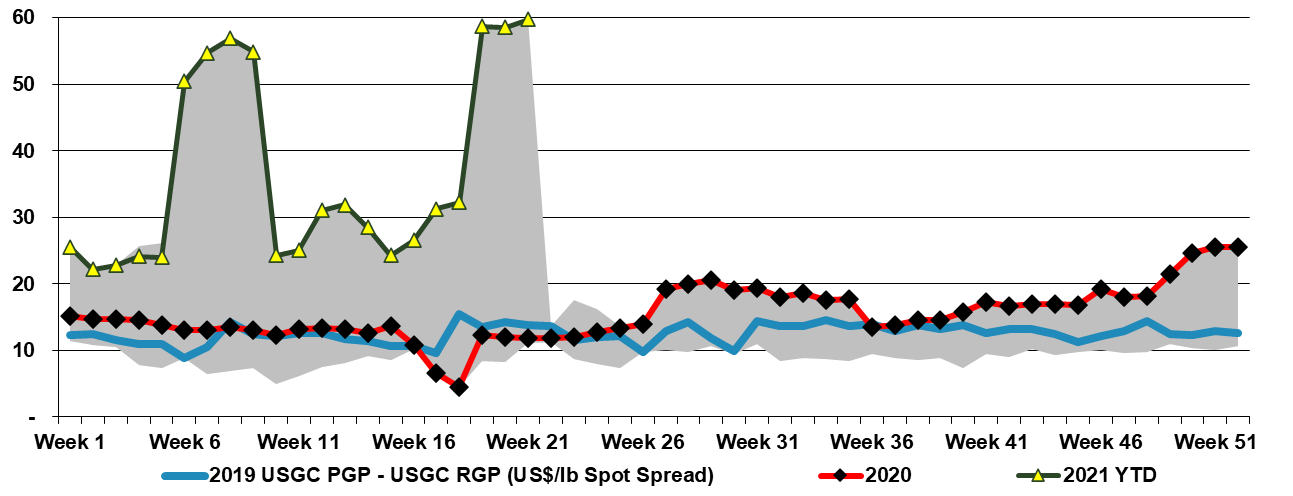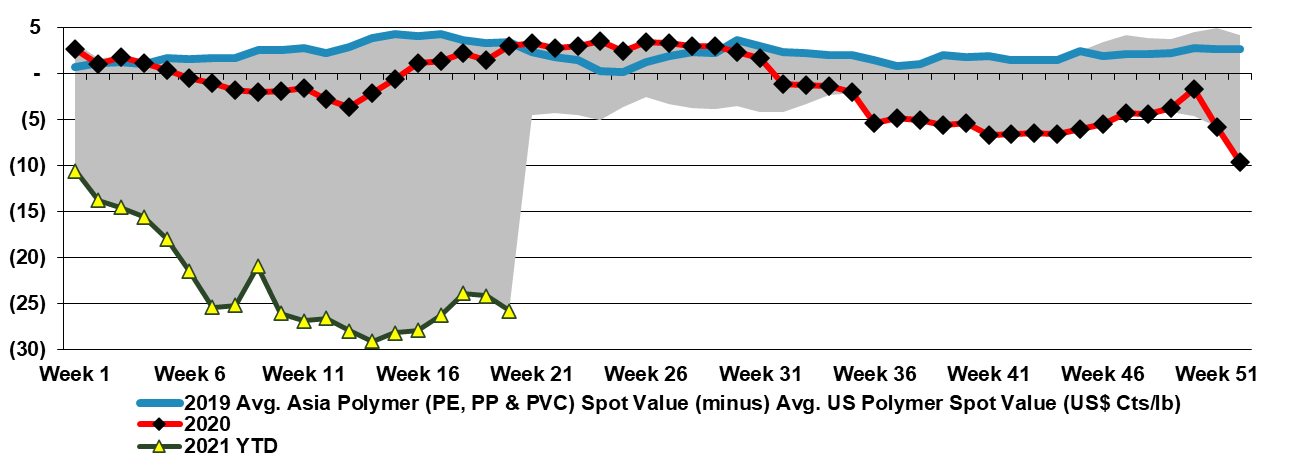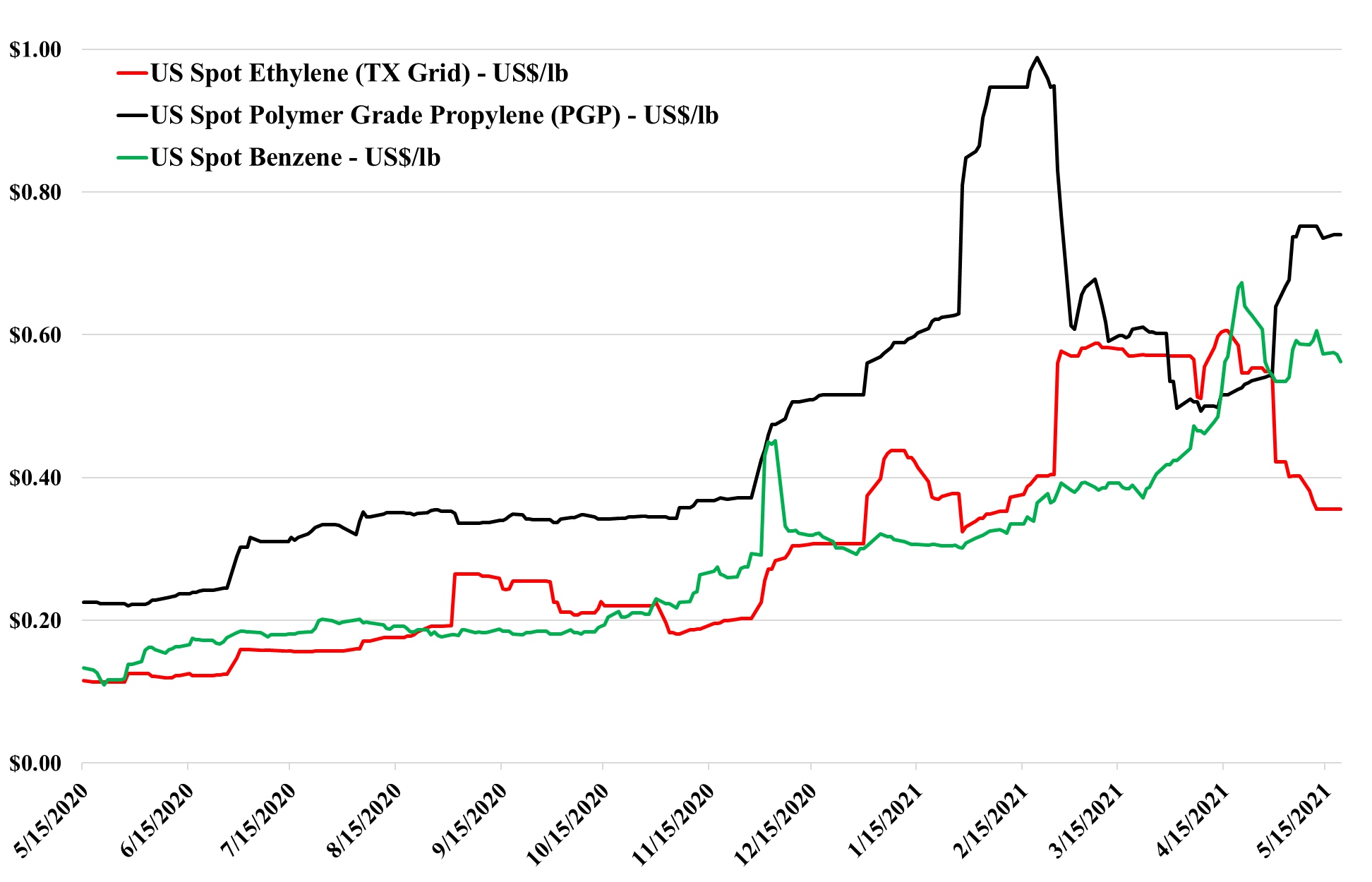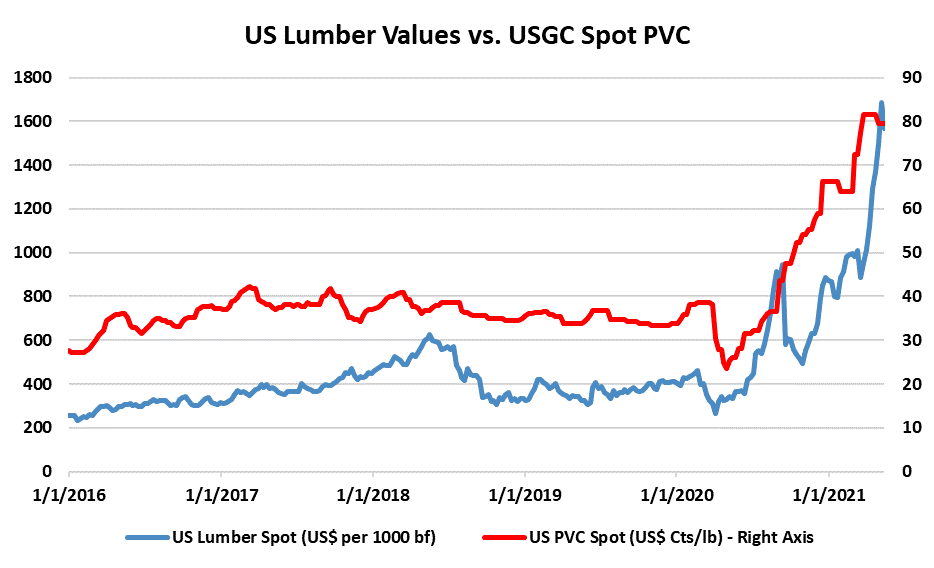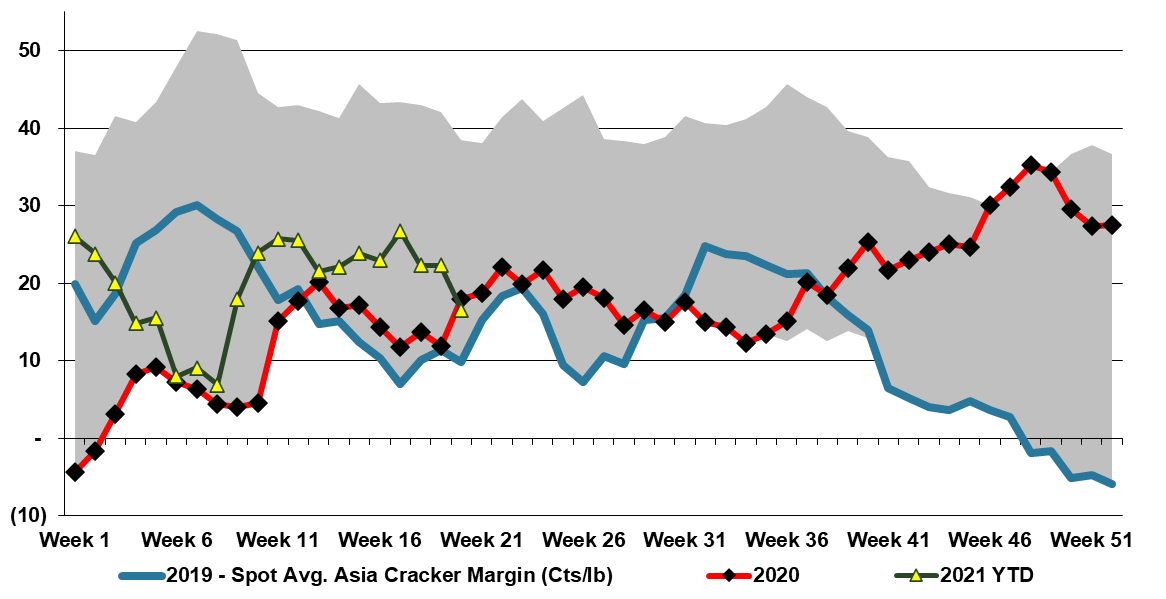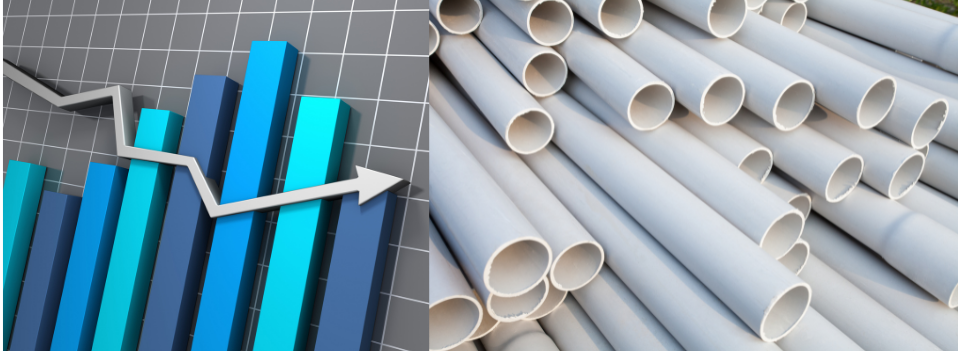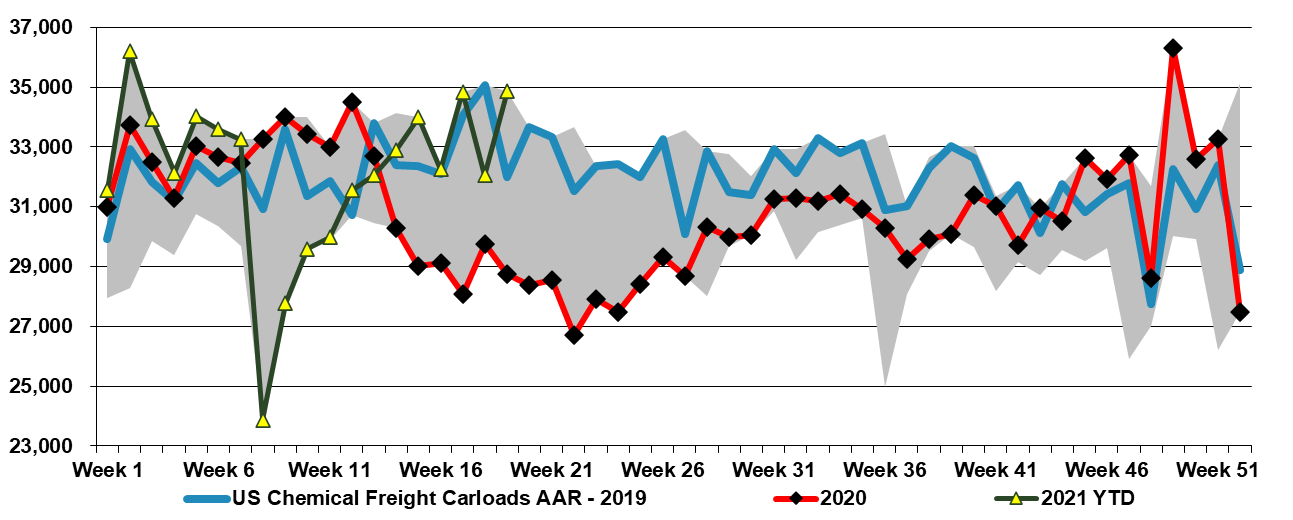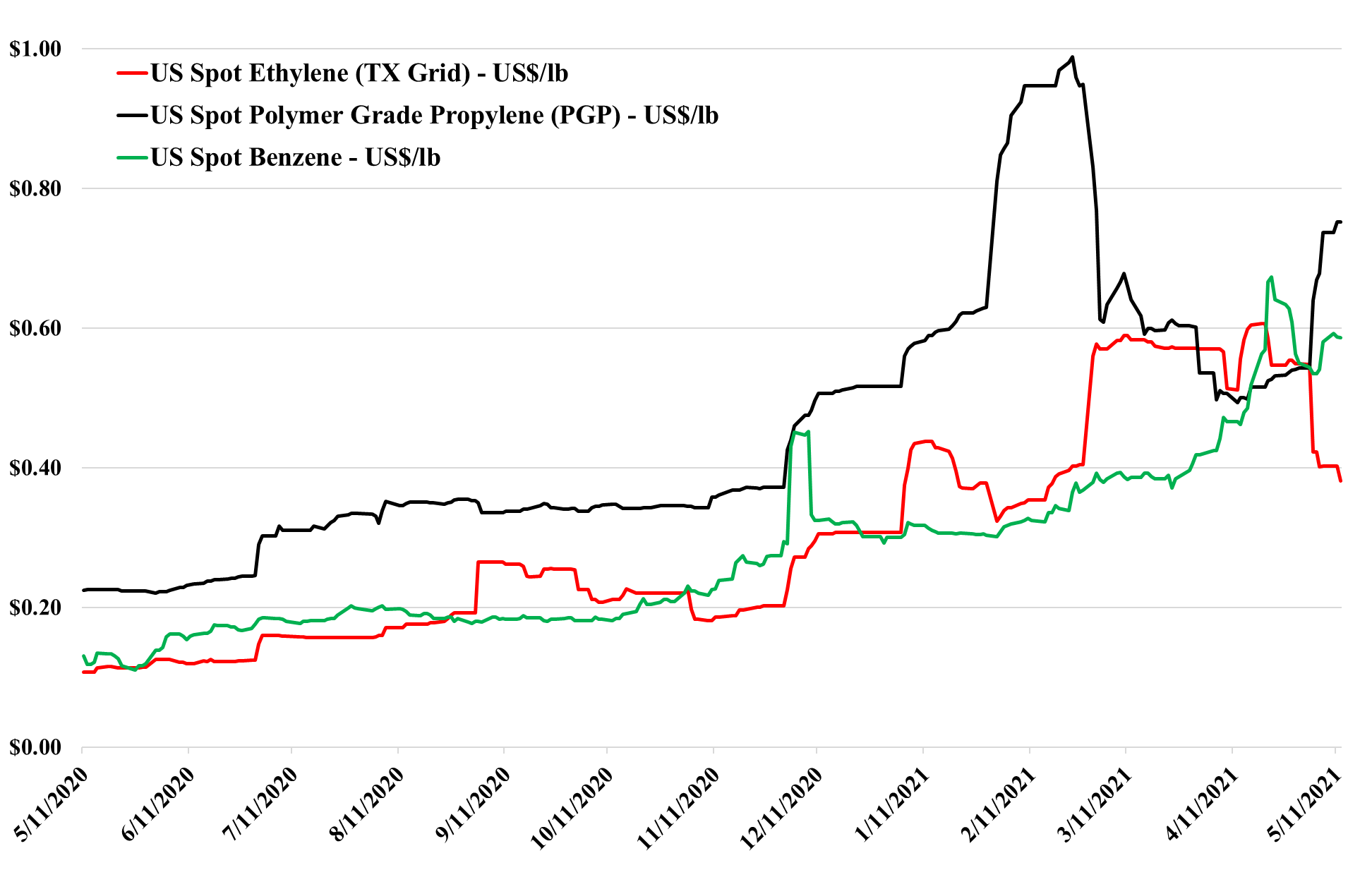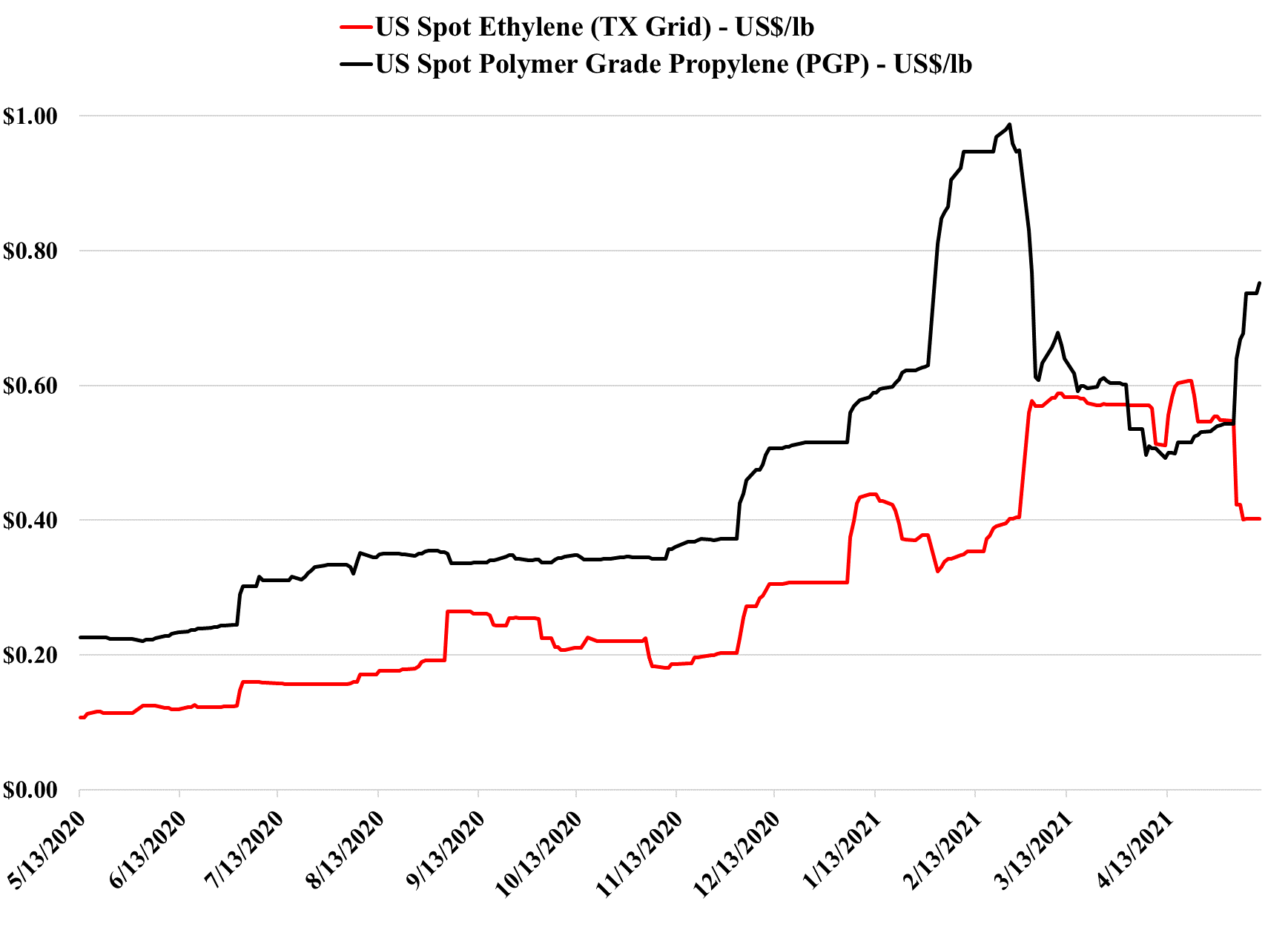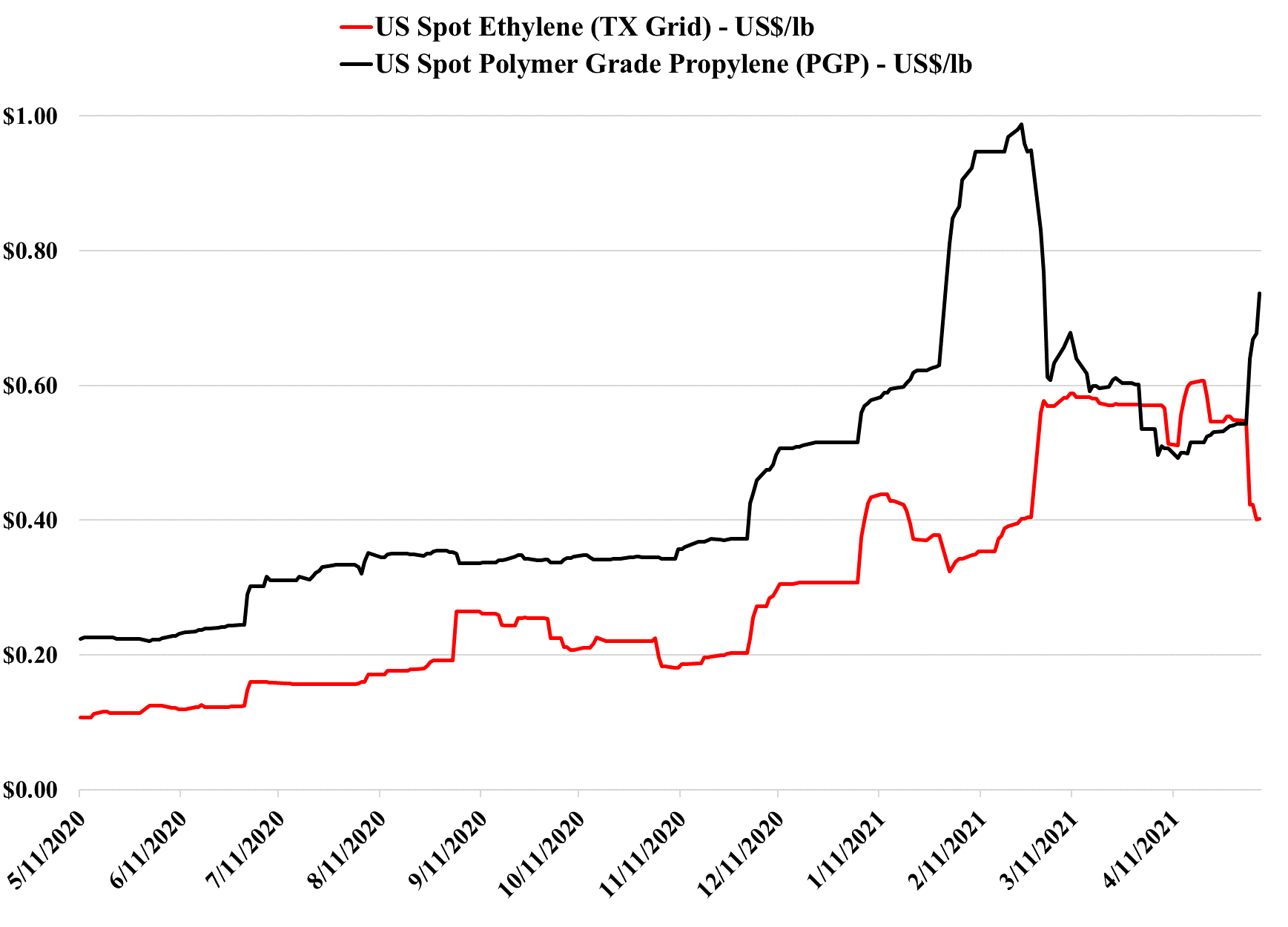The chart below and the others in our daily report linked add more weight to our argument that polymer grade propylene prices in the US have some downside and that it could happen relatively quickly, especially if ethylene producers play the current propane feedstock arbitrage to their full extent. Given weaker propylene derivative markets outside the US, propylene derivative pricing would likely come under some negative pressure if propylene prices fell.
Recent Posts
US Chemicals and Polymers Holding On, But Under Pressure...
May 26, 2021 1:45:58 PM / by Cooley May posted in Chemicals, Polymers, Ethylene, polymer pricing, polymer grade propylene, PGP, feedstock, arbitrage, ethylene producers
Chemicals Friday Question: How Long Can US Polyethylene Hold On?
May 21, 2021 1:08:55 PM / by Cooley May posted in Chemicals, Polyethylene, Ethylene, Ethylene Price, Surplus, US Prices
Referring back to our daily report today, can polyethylene hold on? Despite the strength in US polyethylene prices and the aggressive attempts by sellers to hold on through the quarter, there are couple of key factors working against them. Local supply may be tight in the US, but as we discussed yesterday, ethylene is moving towards a global surplus that could push US prices even lower than we are seeing this week and as the chart below shows clearly, how large the gap between Asian ethylene prices and those in the US. Unlike ethylene, polyethylene is harder to trade in to the US, partly because it is an unusual movement and the shipping costs are high, as would be the cost of getting from a US port to a consumer, but partly because US consumers serving the higher end of the market are very grade and quality conscious and would concerned about product quality and the risk of sending something to their customers that does not do the job as well.
US Ethylene Looks More Precarious Than Other Basic Chemicals
May 20, 2021 12:11:06 PM / by Cooley May posted in Chemicals, Ethylene, Monomer, Prices, Surplus, Export
Pessimism in the Asia ethylene market is a bad sign for ethylene vs. other US monomers. Those in the US with ethylene surpluses may need to fight a bit harder to find homes for the excess product in the US. We have not focused on the cost curve for a while as markets have been tight and global costs have not been an influence in the market for some time. The US has plenty of dry powder, in that export prices can fall significantly before they approach ethane-based costs, and can fall below production costs outside the US – especially in Asia – and still generate a margin for the US sellers. But that would mean more downside for US spot pricing and it may be enough to create some surpluses and some downward pressure on US derivative pricing. The caveat, of course, is that we had the same setup last year, albeit with less new capacity in Asia, and the summer hurricane season quickly wiped away any US surplus. A better understanding of the current cost curve and relative regional pricing can be found in our Weekly from Monday.
We Think Housing Stalled In April, But Still Has Momentum; Good For PVC
May 19, 2021 1:55:21 PM / by Cooley May posted in Polymers, PVC, Housing Products, Lumber
Prices for housing products such as lumber and PVC appear to have hit a pause on their upward march, in part because of lower housing starts, which may be linked to the higher costs – recent estimates suggested that the lumber price moves alone had added $15,000 to the cost of building an average home this year. The overall momentum in the housing market remains strong and the recent lower housing start number could be a one-off. We maintain our preference for the PVC players and still believe that the underlying fundamentals are less precarious than they are for other polymers. See more in Today's Daily.
New Petrochemical Capacity In China Does Not Change The Dynamic Of The Cost Curve
May 18, 2021 12:00:39 PM / by Cooley May posted in Chemicals, Ethylene, Ethylene Price, supply and demand, petrochemicals, petrochemical capacity, global cost curve
This headline about China creating petrochemical deflation is largely based on the rate of capacity addition within China and that base chemical pricing in China still sits well above costs – but the argument may be flawed on a couple of levels. First, costs may not fall materially, given the increased thirst for imported naphtha and propane, as well as crude to fill new refining capacity. If crude prices fall, China will see lower costs, but then so will others. The margin issue is also in question because the wave of China’s new base chemical capacity is arriving amid a surge in demand growth, and this is why margins in Asia have not fallen closer to costs yet. China remains a meaningful importer of many base chemicals – less than two years ago for many products, but still meaningful, and it is the surpluses in the US and the Middle East that may drive deflation should supply chains stabilize and production rates remain high.
Friday Chemical Question: How will global PVC values develop during the next three months? Lower or higher?
May 14, 2021 12:00:54 PM / by Cooley May posted in Chemicals, PVC, supply and demand, PVC Values
Despite Concerns, Inflation May Not Slow Chemical Demand Materially
May 13, 2021 1:50:33 PM / by Cooley May posted in Polymers, Raw Materials, raw materials inflation, Inflation, Chemical Demand, containerboard, packaging, durables, railcar shipments
The concerns about supply chain inflation hurting chemical demand are likely very end-use specific. While the packagers and consumer goods sellers are seeing significant inflation in all raw materials, not just polymers, the packaging is a minor component of the cost and value of what they are selling and while it may hurt their earnings, it is unlikely to stifle demand – none of us is likely to stop buying milk, orange juice or cookies if the prices rise a couple of cents because the manufacturers are trying to cover some of their higher costs.
There May Be Limited Interest In Surplus US Ethylene
May 12, 2021 1:35:57 PM / by Cooley May posted in Propylene, Ethylene, Benzene, Ethylene Price, Sasol
As we highlighted in yesterday's report, ethylene continues to weaken (see chart below) in the US and it is the one product with a true supply/demand-driven problem today – there is simply more capacity to produce ethylene in the US than there is the capacity to consume it. This is a recent phenomenon and has been clouded by the various storm-related outages, the delay in the Sasol start-up. We began to see the length in the ethylene market lats last year and physical export volumes jumped dramatically – fully loading the terminal in Houston for loadings from November through January. This was based on pricing from October through December that created a significant arbitrage to ship to Asia – partly because a few of the China integrated projects had ethylene derivative projects complete before ethylene units were complete. The risk for US ethylene is that it could go much lower – barring outages – as there is no one left in the US who can take a marginal ton, most likely, and China seems well supplied. For more details please see today's daily.
US Ethylene Still Not Cheap Enough To Export, But Likely To Get There
May 11, 2021 11:45:06 AM / by Cooley May posted in Chemicals, Propylene, Ethylene, Ethylene Price
The relative moves in ethylene and propylene prices are not surprising given the news flow – propylene is likely being influenced by concerns around refinery cutbacks again – this time because of the colonial pipeline issues, while ethylene should continue to see downward pressure as the US oversupply emerges from all of the recent production difficulties. See our Daily Report for more.
Monomer Price Volatility Will Linger
May 7, 2021 1:25:37 PM / by Cooley May posted in Chemicals, Propylene, Monomer
The volatility in propylene was something we predicted months ago – there are simply too many moving parts in the market today to predict incremental supply/demand dynamics. We remain of the view that refining rates will improve further over the coming months to address the increasing demand for gasoline and this could swing propylene back in the other direction. See today's report for more on this.


